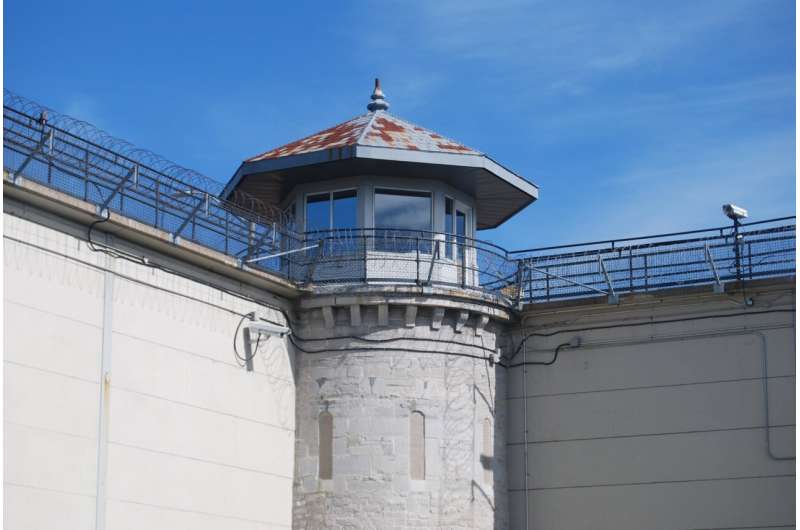Promises to get tough on youth crime might win votes, but the evidence shows it hasn't worked for NZ

The promise to "get tough on youth crime" is a New Zealand election perennial. This year, parties on both the left and right have pledged to crack down on young offenders—despite a lot of evidence that such approaches do not work in the long term.
Already, the is working through the legislative process. If passed, it would create a new offense within the Crimes Act, allowing the prosecution of children as young as 12, and prison sentences of up to ten years.
Labor, National and ACT all in parliament. Labor in government also announced , drawing criticism from opposition parties and justice reform advocates.
National is proposing a new "young serious offender" justice category, as well as the creation of "." ACT wants 200 and responsibility for youth justice to move from children's ministry Oranga Tamariki to the Department of Corrections.
According to current polling, parties on the right may be in a position to form the next government. If so, it seems New Zealand's youth justice system may take a more punitive turn.
Treating symptoms not causes
The country's youth justice system established a "" in the early 1990s, after the became law. This offered a homegrown approach to families and their young people unique to New Zealand. The model of family empowerment, restorative justice, diversion from court prosecution and reintegration in society became known internationally.
While there was a turn towards adult criminal justice in Europe and the United States, New Zealand's system stayed relatively stable until 2008, when a National-led coalition government took power.
Youth justice was a central facet of National's election campaign to end three terms of Labor-led government. Announcing his party's "youth plan," National leader part of it was about "rolling up our sleeves to prevent New Zealand's youth crime problem from becoming tomorrow's crisis."
This included the now familiar election promise to introduce youth "boot camps," and to reduce the age of criminal prosecution to 12.
But as critics have long argued, a focus on "" and has seen punishment prioritized over addressing the root causes of crime and the best interests of young people.
This can be seen in the disproportionate impact of the criminal justice system on Māori and Pacific youth. According to 2021 data, Māori of those in youth detention. Pacific youth account for 7%, and those who identify as both Māori and Pacific account for 13%. Young people who identify as neither Māori nor Pacific comprise only 13% of that population.
Failing to address the complex developmental and social drivers of youth crime means those statistics are unlikely to change.
What is working?
There is also of the influence young people's gradual cognitive and social development can have on criminal behavior.
These age-related factors include reduced impulse control, difficulty with future planning, greater risk taking and susceptibility to peer influence. At the same time, age also offers an increased potential for positive change.
Importantly, offending by children and young people is also often related to and in communities, including poverty, housing instability, and poor physical or mental health.
Young people with , , , and are all criminalized at proportionately higher rates than the general population.
The supports a less punitive approach to youth offending, through diversion or the use of specialist courts, based on promoting welfare and addressing the underlying causes of offending.
There is that restorative justice reduces reoffending. Family group conferences have been the "frequency and seriousness" of offending for 70% of participants, with also helping and promote other positive outcomes.
And the police are proposing to broaden the scope of , which aim to intervene and help with family and personal problems, and have demonstrated a in harm from adult (17 years or older) reoffending.
Trust the evidence
While these developments are encouraging, the into "baby uplifts" by Oranga Tamariki, testimonies to the , and in Oranga Tamariki residences, all raise serious questions about placing more young people in institutions.
Furthermore, New Zealand's rate of youth offending has been . But there is a disproportionately of youth justice beds here relative to other comparable countries, especially considering the system struggles with mental health support.
The United Nations has already identified the with New Zealand's low age of criminal responsibility, punitive practices like "," and the disproportionate numbers of rangatahi Māori in the criminal justice system.
An evidence-led approach to youth justice would involve Māori and see the expansion of specialist courts throughout the country. Rather than lowering the age of criminal responsibility, the eligible age for appearing in the youth courts would be raised.
Overall, the goal would be to minimize the imprisonment of young people, including remand in police cells and youth or adult detention facilities. And there would be much greater investment in iwi partnerships to provide that are whanau-focused and .
As the former chief science adviser to the prime minister , more resources directed at mental health, trauma, substance abuse and inadequate housing should be the basis of preventing more youth offending. A more punitive response may win votes but it will not solve the problem.
Provided by The Conversation
This article is republished from under a Creative Commons license. Read the .![]()





















